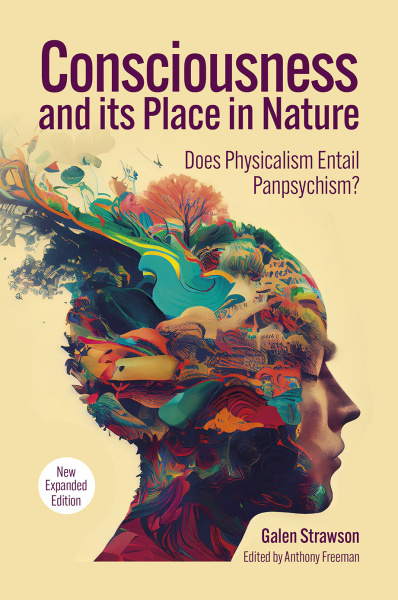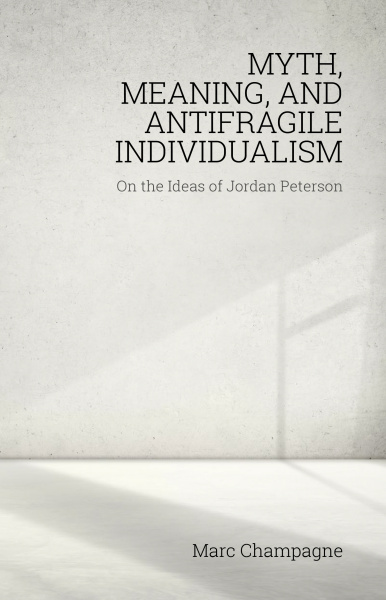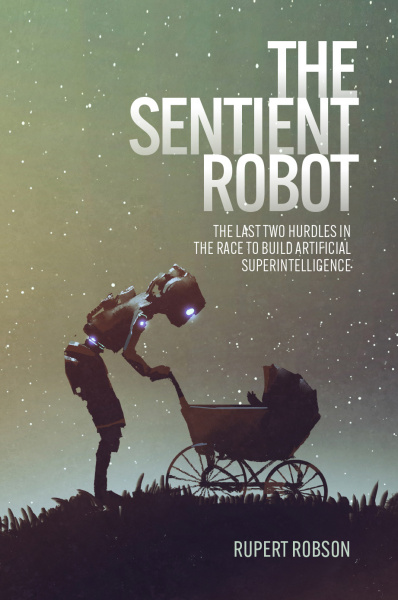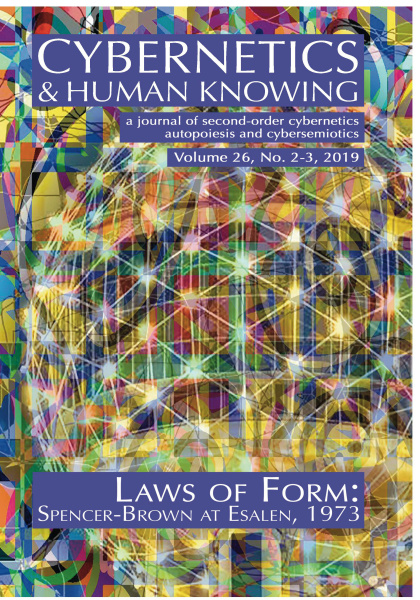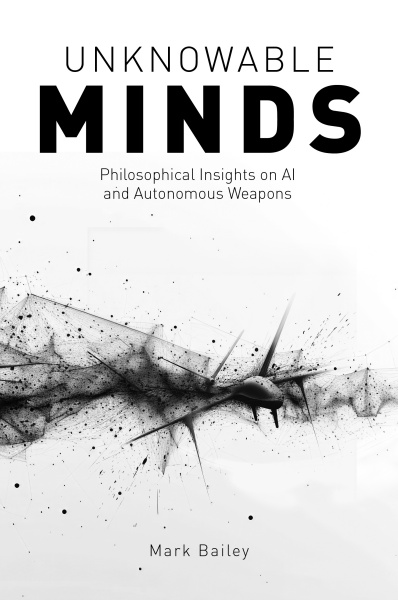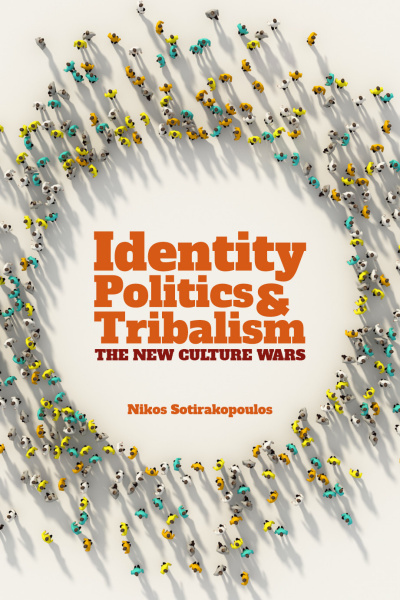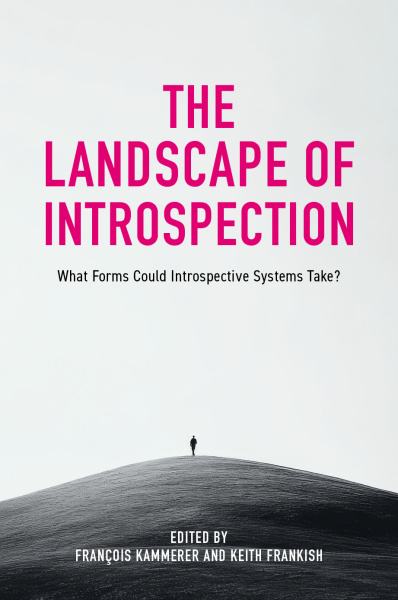Imprint Academic
-

Consciousness and Its Place in Nature
Why Physicalism Entails Panpsychism (2nd Ed.)
Galen Strawson has been on the front line of the battlefield on the topic of panpsychism since the 1990s. This new edition of this seminal book (originally published in 2006) contains several new postscripts on the topic of panpsychism, and Strawson's 'realistic monism' in particular.
-

Shadow, Self, Spirit
Essays in Transpersonal Psychology
Transpersonal Psychology concerns the study of those states and processes in which people experience a deeper sense of who they are, or a greater sense of connectedness with others, with nature, or the spiritual dimension. This book brings together the author's writings on the topic over recent years in a new and enlarged edition.
-

Radical Transformation
The Unexpected Interplay of Consciousness and Reality
In Radical Transformation, Imants Barušs leads the reader out of the receding materialist paradigm into an emerging post-materialist landscape in which new questions present themselves. The book contains discussions of meaning, radical transformation, and subtle activism, revealing the unexpected interplay of consciousness and reality.
-

The Psychology of the Bible
Explaining Divine Voices and Visions
The Psychology of the Bible explores how the Old Testament provides perspective into the tumultuous transition from an earlier mentality to a new paradigm of interiorized psychology and introspective religiosity that came to characterize the first millennium BCE.
-

The 'Other' Psychology of Julian Jaynes
Ancient Languages, Sacred Visions, and Forgotten Mentalities
Brian J. McVeigh, a student of Jaynes, points out the blind spots of mainstream, establishment psychology by providing empirical support for Jaynes's ideas on sociohistorical shifts in cognition. He argues that from around 3500 to 1000 BCE the archaeological and historical record reveals features of hallucinatory super-religiosity.
-

The Many Faces of Coincidence
The Many Faces of Coincidence proposes an inclusive categorisation for coincidences of all shapes and sizes. At the same time, some of the implications arising from the various explanations are explored, including the possibility of an underlying unity of mind and matter constituting the ground of being.
-

Metapsychology of the Creative Process
Continuous Novelty as the Ground of Creative Advance
This book discusses a process (microgenetic) theory of the mental state of creativity that differs markedly from mainstream (cognitive) psychology, but with the potential to clarify many features of thought and imagery, normal and exceptional. Creativity is not an isolated problem but touches many central issues in philosophical psychology.
-

Before Consciousness
In Search of the Fundamentals of Mind
This book aims to integrate the non-conscious as a constitutive dimension of the mind and also to outline how it is indispensable in virtually everything we do.
-

The Singularity
Could artificial intelligence really out-think us (and would we want it to)?
Volume combining two special issues of the Journal of Consciousness Studies on the philosophical aspects of a possible artificial intelligence singularity.
-

Insides and Outsides
Interdisciplinary Perspectives on Animate Nature
Insides and Outsides brings together diverse aspects of animate nature, showing that scientific understandings of animate nature are — or can be — complementary to philosophical understandings.
-

In Their Right Minds
The Lives and Shared Practices of Poetic Geniuses
Based on nearly twenty years of scientific and literary research, this book enters the atypical minds of poetic geniuses — Blake, Keats, Hugo, Rilke, Yeats, Merrill, Plath and Hughes — by way of the visible signs in their lives, beliefs, and shared practices.
-

Microgenetic Theory and Process Thought
The chapters in this volume attempt to establish some foundational principles of a theory of the mind/brain grounded in evolutionary and process theory.
-

Depression, Emotion and the Self
Philosophical and Interdisciplinary Perspectives
This volume addresses the question of what it is like to be depressed. Despite the vast amount of research that has been conducted into the causes and treatment of depression, the experience of depression remains poorly understood.
-

Knowing, Doing, and Being
New Foundations for Consciousness Studies
Between 1965 and 2002 several key lines of research emerged which, taken together, can potentially revolutionise our understanding of the place of consciousness in the universe. In this book the author explains the close connections between these new ingredients.
-

God versus Particle Physics
A No-Score Draw
This book presents the conclusions of a psychologist seeking to make sense of contemporary particle physics as described in a number of popular science texts and media articles, written by physicists, seeking to explain the workings of the sub-atomic world.
-

Amputated Souls
The Psychiatric Assault on Liberty 1935-2011
Amputated Souls explores the subject of the assault upon human rights and human freedom by psychiatrists and the clinical methods they use. The book traces the history of lobotomy and ECT from their invention in southern Europe in the 1930s, under fascist and authoritarian regimes, to the present day.
-

Looking In and Speaking Out
Introspection, Consciousness, Communication
The authors argue it is essential to examine the linguistic and communicative practices that are used in the production of introspective data, and thereby make an important contribution to debates about how we may study experience that are relevant to a wide range of disciplines.
-

The Moon and Madness
Lunacy, the legendary notion of minds unhinged by the moon, continues to captivate the popular imagination. The book is divided into two parts. It begins with a historical account of the lunacy concept, followed by an investigation of hypothetical mechanisms for a lunar effect.
-

Pluralism and the Mind
This book argues that new concepts of emergent mental properties are needed because of the failure of mainstream approaches satisfactorily to address issues like subjective volition, autonomy and creativity. Personal consciousness is active and classifiable as a subset of the wider problem of biological causation.
-

The Implications of Embodiment
Cognition and Communication
This edited volume is scientifically based, but readable for a larger audience, covering the concept of "embodied cognition" and its implications from a transdisciplinary angle.
-

Situated Aesthetics
Art Beyond the Skin
This book focuses on externalist approaches to art. It is the first fruit of a workshop held in Milan in September 2009, where leading scholars in the emerging field of psychology of art compared their different approaches using a neutral language and discussing freely their goals.
-

Digital Social Mind
This book argues that relational cognition, a form of social cognition, exhibits digital infinity as does language.
-

Ten Years' Viewing from Within: Further Debate
This special issue of the Journal of Consciousness Studies is the sequel to Ten Years of Viewing from Within, commemorating the tenth anniversary of the publication of The View from Within, where Francisco Varela in collaboration with Jonathan Shear designed the foundations of a research program on lived experience.
-

JCS Symposium on Describing Inner Experience
A Debate on Descriptive Experience Sampling
A special issue of the Journal of Consciousness Studies debating the merits of Russell Hurlburt's technique of Descriptive Experience Sampling (DES) as a means of accessing inner experience.
-

Who Was Mrs Willett?
Landscapes and Dynamics of Mind
Here is an account of mentality and human experience, written for a multi-disciplinary readership. The focus is on how mind, consciousness and selves inter-relate, extending into exploration of ideas about the nature of awareness and a search for relevant evidence.
-

The Victorian's Guide to Consciousness
Essays Marking the Centenary of William James
A special issue of the Journal of Consciousness Studies to mark the centenary of the death of the pioneer psychologist William James.
-

Getting Darwin Wrong
Why Evolutionary Psychology Won't Work
This book, which is written in a reader friendly but rigorous style, is a timely assault on one of the most fashionable philosophies of mind currently 'out there'.
-

Spiritual Crisis
Varieties and Perspectives of a Transpersonal Phenomenon
In this book people speak about inner experiences in which they perceived themselves and the world so differently that they thought they were going mad. Experiences of existential voids, heights and depths, freezing wastes and silences, of pure energy, love and fear, oneness and chaos.
-

Mindworlds
A Decade of Consciousness Studies
Understanding consciousness is one of the central scientific challenges of our time. This book presents Andy Ross's recent work and discusses a range of perspectives on the core issues.
-

Ten Years of Viewing from Within
The Legacy of Francisco Varela
Ten years on from The View From Within, Claire Petitmengin has organized a collection of essays that examine and refine the research program on first-person methods defined in The View from Within, with contributions based on empirical research.
-

Narrative and Folk Psychology
This volume, which is a special issue of the Journal of Consciousness Studies, brings together new work by scholars from a range of disciplines whose aim is to clarify, develop and challenge the claim that folk psychology may be importantly - perhaps even constitutively - related to narrative practices.
-

The corporeal turn
An interdisciplinary reader
The purpose of The Corporeal Turn is to document in a single text the impressive array of investigations possible with respect to the body and bodily life, and to show that, whatever the specific topic being examined, it is a matter of fathoming and elucidating complex and subtle structures of animate meaning.
-

The Origin of Consciousness in the Social World
Western individualism has delayed scientific recognition of the essentially social nature of consciousness – or at least of the human mind and brain. The contributors to this volume, introduce some anthropological themes into consciousness studies.
-

Healing, Hype or Harm?
A Critical Analysis of Complementary or Alternative Medicine
The scientists, academics and practitioners writing this book are not 'against' complementary or alternative medicine (CAM), but they are very much ‘for’ evidence-based medicine and single standards. They aim to counter-balance the many uncritical books on CAM and to stimulate intelligent, well-informed public debate.
-

Brainstorming
Views and Interviews on the Mind
Shaun Gallagher is a philosopher of mind who has made it his business to study and meet with leading neuroscientists, including Michael Gazzaniga, Marc Jeannerod and Chris Frith. The result is this unique introduction to the study of the mind, with topics ranging over consciousness, emotion, language, movement, free will and moral responsibility.
-

Representational and the Presentational
An Essay on Cognition and the Study of Mind
In this wide-ranging book the author presents his critique of the contemporary portrayal of cognition, an analysis of the conceptual foundations of cognitive science and a proposal for a new concept of the mind.
-

Mind, the Body and the World
Psychology After Cognitivism?
The roots of cognitivism lie deep in the history of Western thought, and to develop a genuinely post-cognitivist psychology, this investigation goes back to presuppositions descended from Platonic/Cartesian assumptions and beliefs about the nature of thought.
-

Interplay Between Consciousness and Concepts
Questions on the nature of concepts in philosophy, psychology, and cognitive science, such as 'What are concepts?' and ‘What is it to possess a concept?’ are notoriously difficult to answer. These questions are tackled here by Simon Baron-Cohen, Peter Carruthers, and a distinguished cast of scientists and philosophers.
-

Dimensions of Personhood
This collection of original articles considers the perennial question 'What are persons?' It aims first of all to clarify the nature of the question and its relation to associated questions such as the nature of the human animal.
-

What Does it All Mean?
A Humanistic Account of Human Experience
Adams sets out a new reasoned argument, based on his experience as a cognitive psychologist and as a human being, to show why Socrates was right: the purpose of life is to recognize ourselves — in each other and in all things.
-

World in My Mind, My Mind in the World
Key Mechanisms of Consciousness in People, Animals and Machines
Not consciousness, but knowledge of consciousness: that is what this book communicates in a fascinating way.
-

Science as a Spiritual Practice
Science as a Spiritual Practice is in three parts. In the first part the author argues that there are problems with materialism and that self-transformation could lead scientists to more comprehensive ways of understanding reality. Part two discusses inner knowledge and altered states. Part 3 analyses the philosophy of Franklin Wolff.
-

Paranormal and the Politics of Truth
A Sociological Account
This book is based on the author's ten-year research into the politics of belief surrounding paranormal ideas.
-

How Many People are There in My Head? And in Hers?
An Exploration of Single Cell Consciousness
This book makes the proposal that the only possible solution to the 'mind-brain' problem is that each nerve cell is conscious separately and that we have no other 'global' consciousness.
-

Emotion Experience
Emotion experience has failed to date to gain a central place in the study of consciousness. This special issue of the Journal of Consciousness Studies presents the most recent views on the matter, with discussions of several aspects of emotion experience.
-

Moral Mind
A Study of What it is to be Human
The reality and validity of the moral sense — which ordinary people take for granted — took a battering in the last century. Haslam shows how important the moral sense is to the human personality and exposes the weakness in much current thinking that suggests otherwise.
-

Shadow, Self, Spirit
Essays in Transpersonal Psychology
Transpersonal Psychology concerns the study of those states and processes in which people experience a deeper sense of who they are, or a greater sense of connectedness with others, with nature, or the spiritual dimension. This book brings together the author's writings on the topic over recent years.
-

Sheldrake and His Critics
The Sense of Being Glared at
Rupert Sheldrake outraged the scientific establishment in the early 1980s with his hypothesis of morphic resonance. In this book Sheldrake summarizes his case for the 'non-visual detection of staring'. His claims are scrutinised by fourteen critics, to whose commentaries he then responds.
-

Paradoxical Primate
Human beings have an evolved but highly adaptable nature. This book sets out to establish a new framework for understanding human nature, from an evolutionary perspective but drawing on existing social sciences.
-

Hidden Resources
Classical Perspectives on Subjectivity
To what extent can the current discussion of consciousness in mainstream cognitive science and analytical philosophy of mind profit from insights drawn from the investigations of subjectivity found in the Kantian and post-Kantian tradition (Kant, Schleiermacher, Kierkegaard) as well as in the phenomenological and hermeneutical tradition?
-

Why the Mind is Not a Computer
A Pocket Lexicon of Neuromythology
The equation "Mind = Machine" is false. This pocket lexicon of "neuromythology" shows why.
-

Trusting the Subject?
Volume Two
This work is designed to encourage cognitive scientists to take more account of the subject's unique perspective.
-

Science, Consciousness and Ultimate Reality
The Science, Consciousness and Ultimate Reality project was set up with the support of the John Templeton Foundation in order to examine critical issues at the interface between science, religion and the field of 'consciousness studies'.
-

Trusting the Subject?
Volume One
This work is designed to encourage cognitive scientists to take more account of the subject's unique perspective.
-

Man Who Tasted Shapes
The ten people in one million who are synaesthetes are born into a world where one sensation (e.g. sound) conjures up one or more others (e.g. taste or colour). Extensive experiments with more than forty synaesthetes led Richard Cytowic to an explanation of synaesthesia that emphasized the primacy of emotion over reason.
-

Psi Wars
Getting to Grips with the Paranormal
This collection of essays shows that a simple division into 'sceptics' and ‘believers’ for the paranormal cannot be made. The real struggle, for all researchers, is not with each other, but to get a secure hold on the subject itself.
-

Structure of Thinking
A Process-oriented Account of Mind
This book presents an alternative, naturalistic view of human thinking, arguing that computers are merely sophisticated machines.
-

How Could Conscious Experiences Affect Brains?
In daily life we take it for granted that our minds have conscious control of our actions, at least for most of the time. But many scientists and philosophers deny that this is really the case, because there is no generally accepted theory of how the mind interacts with the body. Max Velmans presents a non-reductive solution to the problem.
-

Varieties of Religious Experience
Centenary Essays
William James published his classic work on the psychology of religion, "The Varieties of Religious Experience", in 1902. To mark the centenary, leading contemporary scholars reflect on changes in our understanding of the questions James addressed.
-

Is the Visual World a Grand Illusion?
There is a traditional scepticism about whether the world "out there" really is as we perceive it. A new breed of hyper-sceptics now challenges whether we even have the perceptual experience we think we have. The writings collected in this volume explore the implications of this scepticism.
-

Emergence of Consciousness
How does the conscious mind relate to the physical body? In The Emergence of Consciousness philosopher Robert Van Gulick gives a clear and masterly overview and comparison of the current 'emergent' and ‘reductive’ approaches. Other contributors discuss more detailed aspects of the subject.
-

Cognitive Models and Spiritual Maps
Interdisciplinary Explorations of Religious Experience
This book throws down a challenge to religious studies, offering a multidisciplinary approach - including developmental psychology, neuropsychology, philosophy of mind, and anthropology.
-

Volitional Brain
Towards a Neuroscience of Freewill
The puzzling status of volition is explored in this issue by a distinguished body of scientists and philosophers.
-

Models of the Self
A comprehensive reader on the problem of the self as seen from the perspectives of philosophy, development psychology, robotics, cognitive neuroscience, psychopathology, semiotics, phenomenology and contemplative studies, all focused on a keynote paper.
-

How to Solve the Mind-body Problem
The mind is the brain. Each mental state -- each hope, fear, thought -- can be identified with a particular physical state of the brain, without remainder. So argues Nicholas Humphrey in this highly readable yet scholarly essay.
-

View from Within
First-person Approaches to the Study of Consciousness
Drawing on a wide range of approaches — from phenomenology to meditation — THE VIEW FROM WITHIN examines the possibility of a disciplined approach to the study of subjective states. The focus is on the practical issues involved.

